Spray Granulation Gives Solid Materials Customized Properties (German article)
Flowability, dustlessness and easy dosing — these are some of the plus points of granulates produced by fluidized bed or spouted bed technology. The product design can be specifically influenced by process engineering. Conversion of one or more raw materials or substances present as liquids into a long-term stable solid product form with precisely defined properties. (article in German language)
- Author: Dr. Michael Jacob, Head of Process Technology Food, Feed & Fine Chemicals, Glatt Ingenieurtechnik GmbH
- originally published in the trade magazine ‘PROCESS’, issue 10/2012, VOGEL Communications Group GmbH & Co. KG
- Spray Granulation Gives Solid Materials Customized Properties (process-worldwide.com)
Whether for subsequent use as solid compounds in washing agents, food or feed products or to increase the stability of chemical substances, e.g. reduction of the decomposition risk, or for volume reduction to make transport and storage easier, or for the production of stable multi-component systems, e.g. ceramics or catalysts, or also to minimise risk potentials — a variety of industrial applications require a conversion of one or more raw materials or substances being available in form of liquids to a long-term stable solid product form with exactly defined properties.
Spray granulation processes using fluidized bed or spouted bed technology provide processing options for the production of free-flowing granulates directly from the liquid. This process can be used for a variety of material systems, applications and industries as the product properties can be varied by the selection of specific process parameters and technical apparatus configurations. Spray-granulated products are typically characterised by the following properties:
Further information on this topic and related topics can also be found in the following publications:
Published article: ‘How to Tame Recalcitrant Ingredients with Technological Processes’ PDF, English
Published article: ‘The gentle processing of highly volatile oils by fluid bed and spouted bed technology’ PDF, English
Published article: ‘Process Technologies to Optimize Detergent Manufacturing’. PDF, English
Published article: ‘Contract manufacturing by fluid bed and spouted bed technology: Which is better, continuous or batch process?’ PDF, English
Published article: ‘Spray (micro)encapsulation of sensitive substances in matrix form – An overview of essential oil and vitamin case studies’ PDF, English


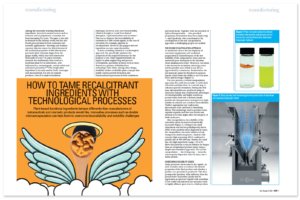
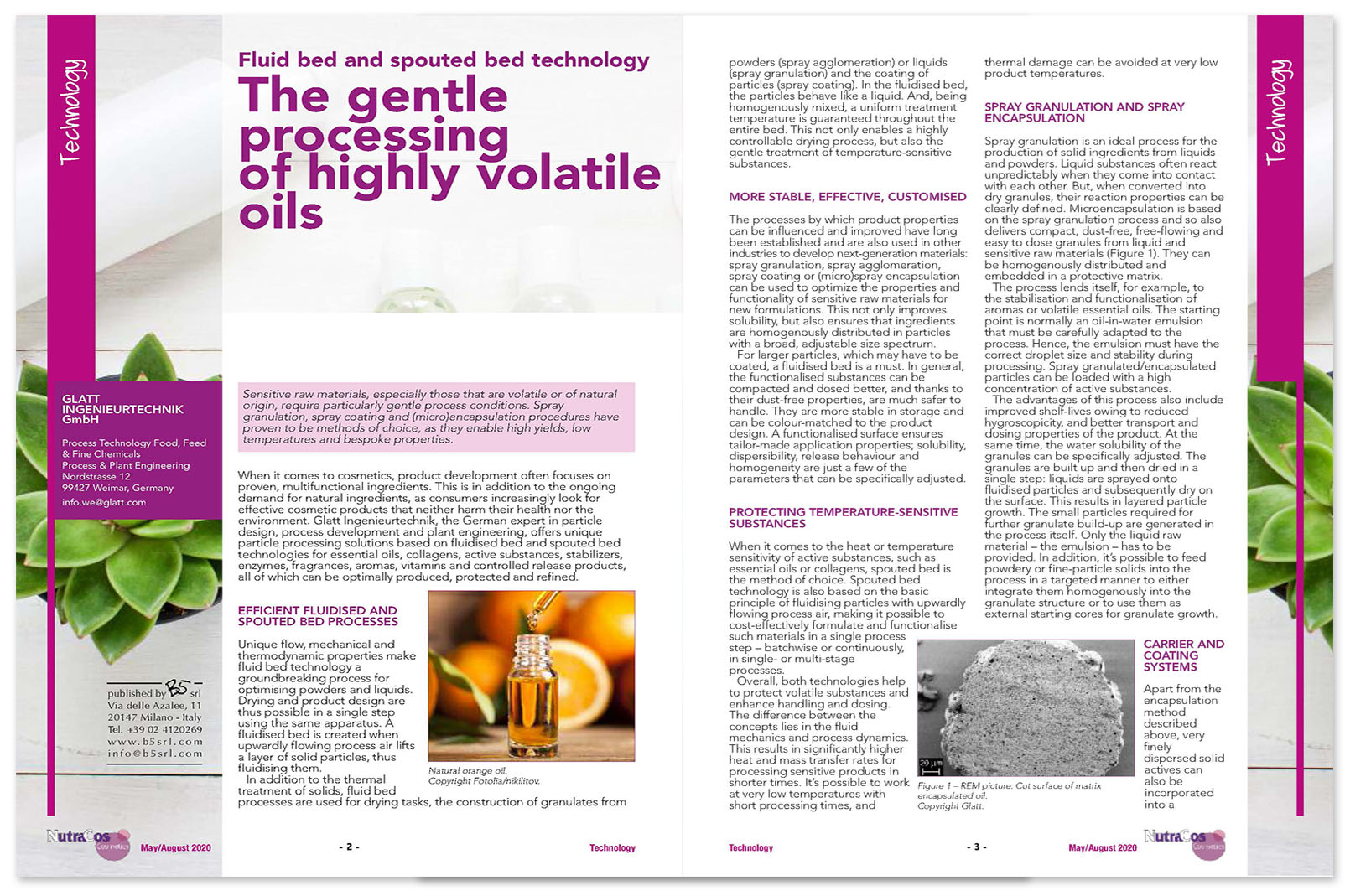
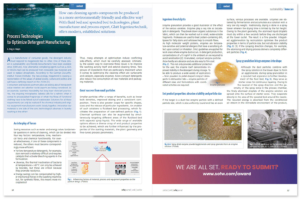
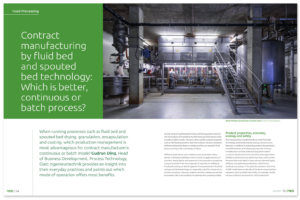
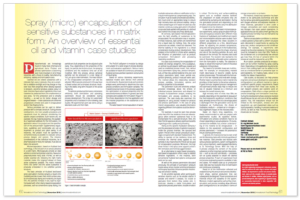
 Copyright: Vereinigte Fachverlage GmbH
Copyright: Vereinigte Fachverlage GmbH Copyright: VOGEL Communications Group GmbH & Co. KG
Copyright: VOGEL Communications Group GmbH & Co. KG